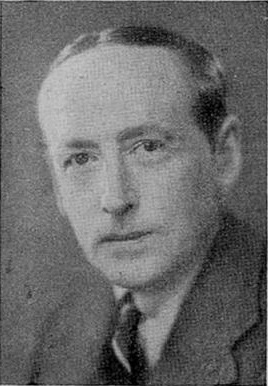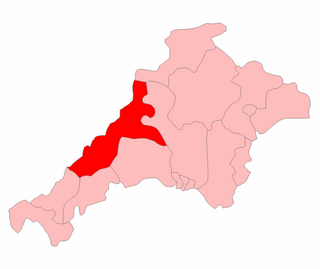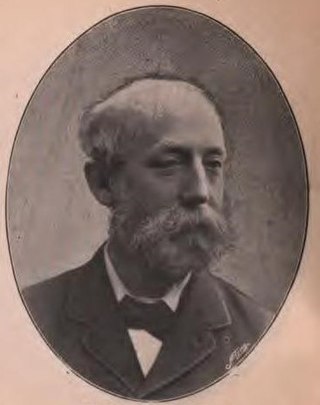
The Parliamentary Secretary to the Treasury is the official title of the most senior whip of the governing party in the Parliament of the United Kingdom. Today, any official links between the Treasury and this office are nominal and the title of the office can be seen as a sinecure that allows the incumbent to draw a Government salary, attend Cabinet, and use a Downing Street residence, traditionally 12 Downing Street.
In 1974, under the Local Government Act 1972, the administrative counties of Cumberland and Westmorland were abolished, and were combined with parts of Lancashire and Yorkshire to form the non-metropolitan county of Cumbria.
Wednesbury was a borough constituency in England's Black Country which returned one Member of Parliament (MP) to the House of Commons of the Parliament of the United Kingdom from 1868 until it was abolished for the February 1974 general election.

Sir Geoffrey Le Mesurier Mander was a Midland industrialist and chairman of Mander Brothers Ltd., paint and varnish manufacturers in Wolverhampton, England, an art collector and Liberal parliamentarian.
The historic county of Middlesex in south east England was represented in Parliament from the 13th century. This article provides a list of constituencies constituting the Parliamentary representation from Middlesex.
In the United Kingdom, general elections occur at least every five years. About 650 constituencies return a member of Parliament. Prior to 1945, electoral competition in the United Kingdom exhibited features which make meaningful comparisons with modern results difficult. Hence, unless otherwise stated, records are based on results since the 1945 general election, and earlier exceptional results are listed separately.
This article about records of members of parliament of the United Kingdom and of England includes a variety of lists of MPs by age, period and other circumstances of service, familiar sets, ethnic or religious minorities, physical attributes, and circumstances of their deaths.
Sir Robert Bland Bird, 2nd Baronet KBE was a Conservative Party politician in the United Kingdom.
The 1922 Wolverhampton West by-election was a by-election held for the British House of Commons constituency of Wolverhampton West in Wolverhampton on 7 March 1922. It was won by the Coalition Conservative candidate Sir Robert Bird.

The 1932 North Cornwall by-election was a parliamentary by-election held on 22 July 1932 for the British House of Commons constituency of North Cornwall.

Sir Alfred Hickman, 1st Baronet was a British industrialist and Conservative party politician who was a Member of Parliament (MP) between 1885 and 1906.
Thomas Frederick Richards was a British trade unionist and Labour Party politician.